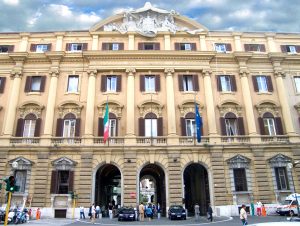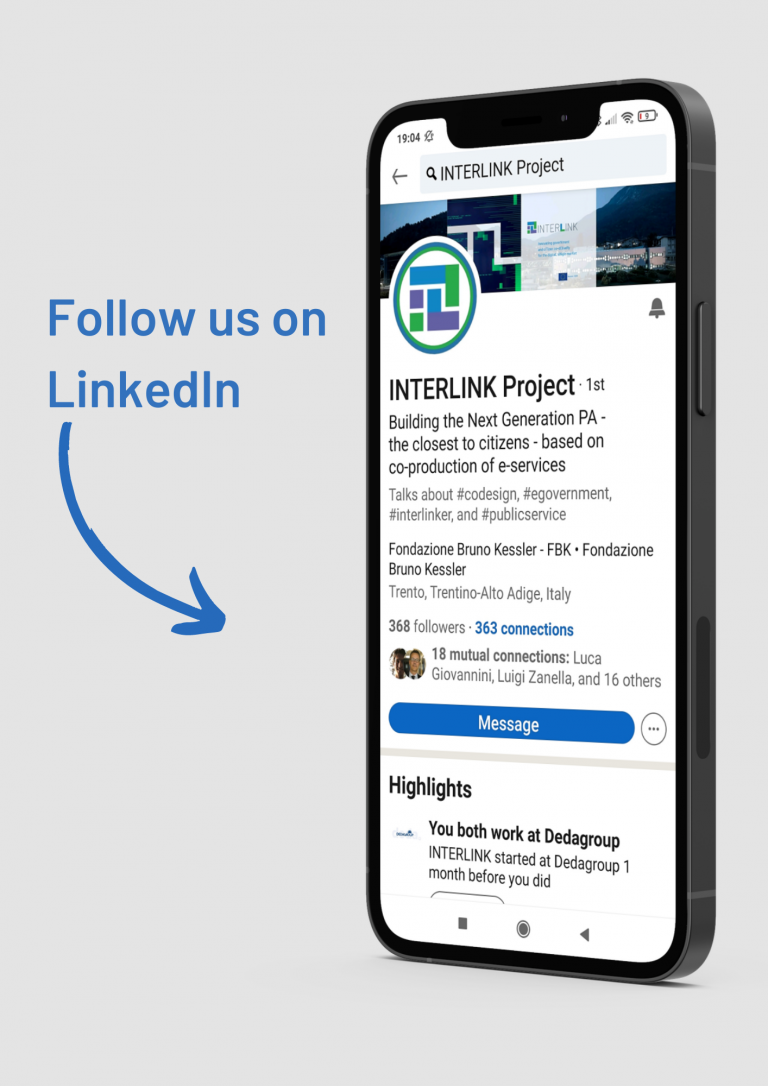The H2020 Interlink Project is going to build the Next generation of PAs. Our story begins in 2019 when the consortium of 10 public and private bodies, from 6 EU countries (Belgium, Finland, Italy, Latvia, The Netherlands, and Spain) applied for the Governance for the Future call (DT-GOVERNANCE-05-2018-2019-2020) and then started in 2021. We are navigating in the middle of the project and its results.
What about our objectives?
We are working to develop a new collaborative governance model based on partnerships between public administrations, citizens, and companies. To do so, we will provide a set of Interlinkers, and digital enablers to standardize the basic functionalities needed by collaborative stakeholders networks to co-produce a service.
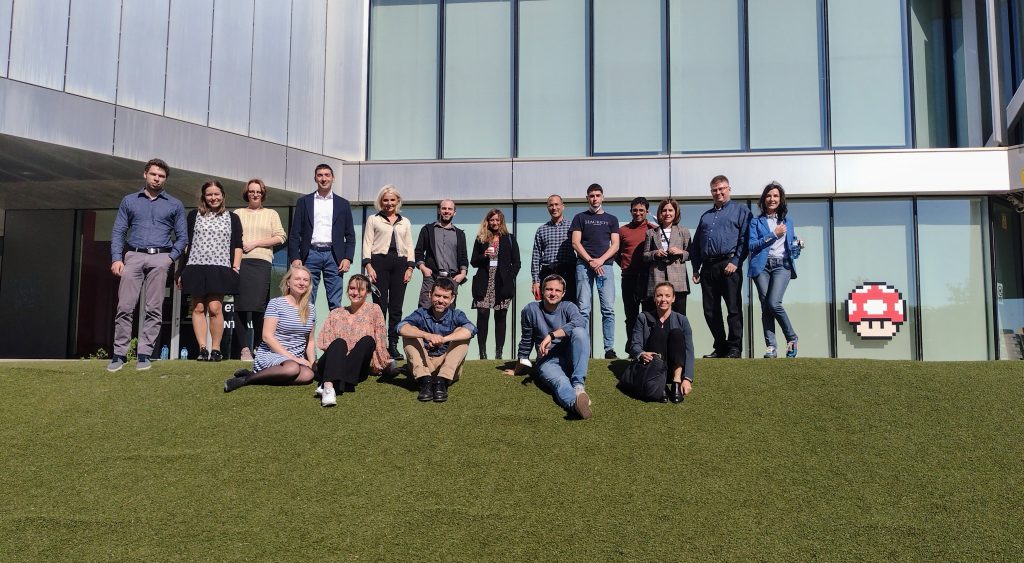
We are currently designing an operational platform, an open software system while identifying the legal framework to protect personal data. As we are a research project, we are going to evaluate and assess solutions in three proof-of-concept use-cases in Italy, Latvia, and Spain.
What about our keywords?
INTERLINKERS: Common building blocks, provided as software tools or in the form of knowledge offered digitally, that represent interoperable, re-usable, EU-compliant, standardized functionality for the co-production of public services.
PUBLIC SERVICES: Services that are publicly available and are provided by the government or on behalf of the government’s servants in the interest of its citizens. We focus not only on the software services (i.e., the services delivered digitally) but also on the services that rely on digital technologies.
What about Interlink people?
Let’s dive into our project, events, and resources: come connect, share and feedback to us! Our strength relies on multidisciplinarity: we are experts, professors, practitioners, and PhDs from research institutes, National administrations, universities, ICT companies, and startups.
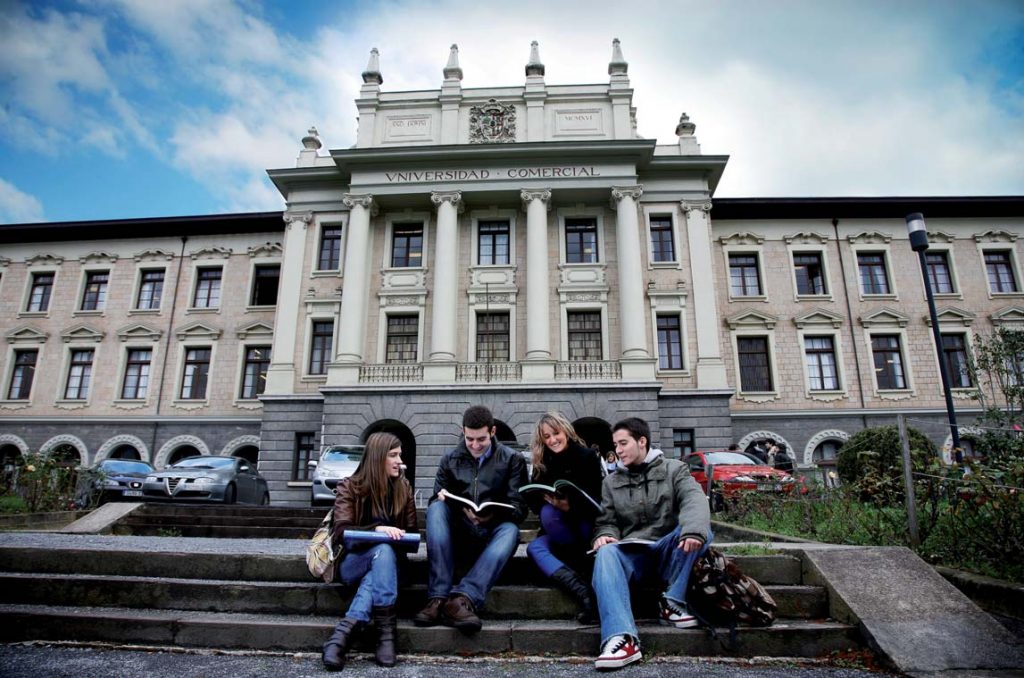
Plus, we are an open and inclusive community of citizens with the aim to co-produce innovative eServices! Discover our consortium!
What will the public administration of the future look like?
The ways in which the public sector can innovate include using technology more proactively, collaborating, and communicating within and with citizens and private bodies.

The Interlink project will overcome the barriers that hinder administrations to reuse and share services with private partners (including citizens) by combining the advantages of two often opposed approaches:
- the “top-down” approach where Government holds primary responsibility for creating these services compliant with EU directives, sometimes seeking the support of citizens for a specific design or delivery task;
- the “bottom-up” approach in which citizens self-organize and deliver grassroots services where the government plays no active role in day-to-day activities but may provide a facilitating framework.
Developing a new collaborative governance model based on partnerships between public administrations, citizens, and companies is our vision.
What is the innovation we are exploring? Read the article!
How can Interlink shape the Governance for the Future?
The European Commission states that Governance is being transformed by new approaches to delivering public services that allow for the involvement of citizens and various other actors.
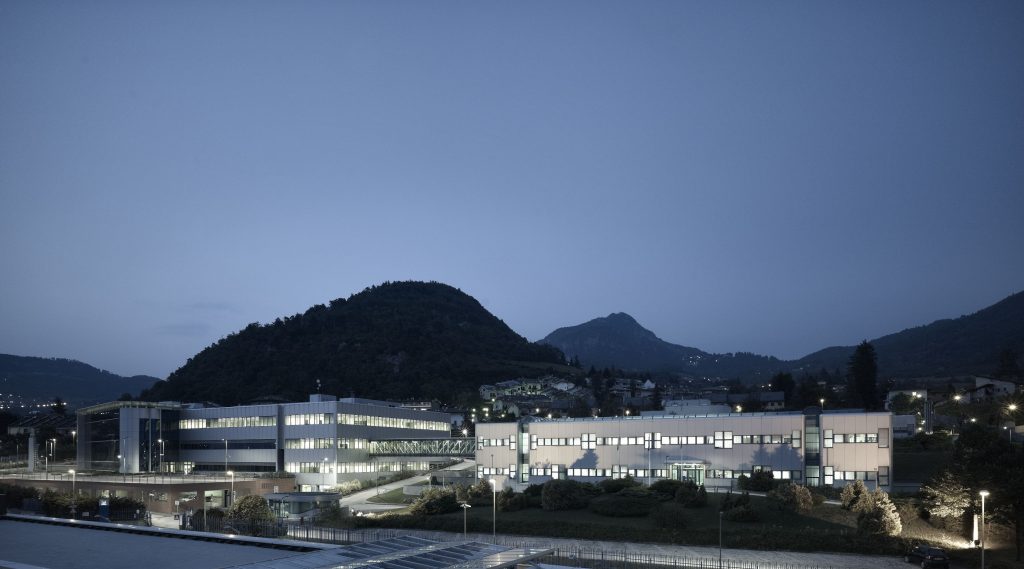
The challenge we are facing is “to critically assess and support as needed this transformation based on an open collaboration and innovation platform supported by ICT (“government as a platform”) and on an open environment and ecosystem with clear frameworks and guidelines for modular services quality (“government as a service”).
Want to know how we are facing the challenge? Read the article!
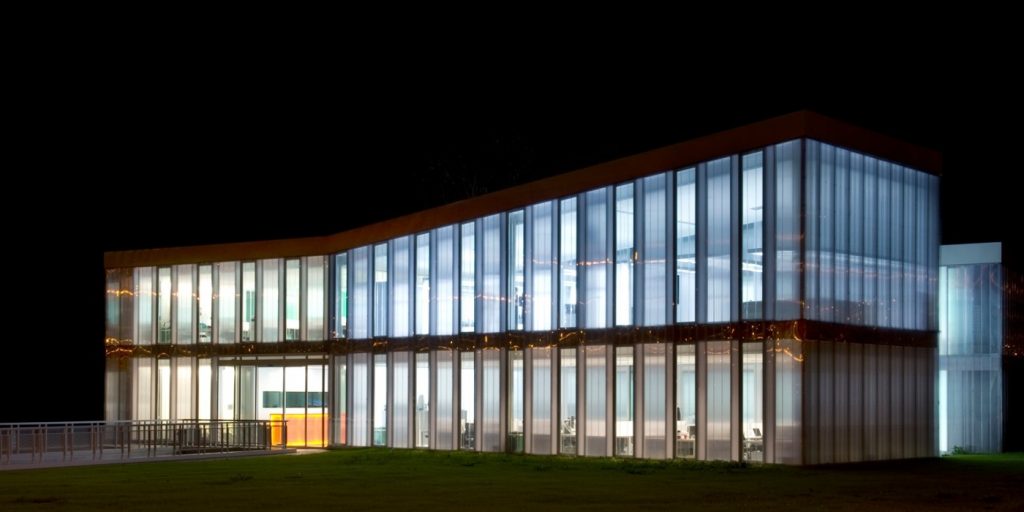
What next?
We are about to launch the INTERLINK platform: stay tuned!



